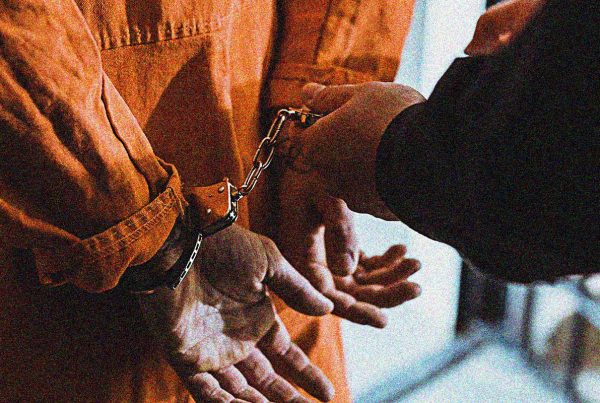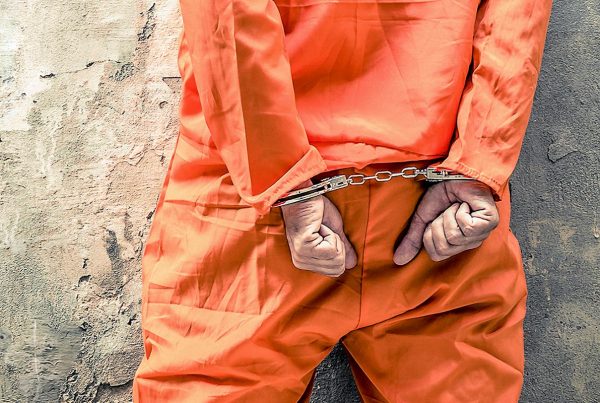In 2001, the Supreme Court of Canada called strip searches “one of the most extreme exercises of police power” and “inherently humiliating and degrading” (R. v. Golden, 2001 SCC 83 at paras. 89-90). Federal legislation restricts when these highly invasive searches can take place – restrictions that have not been heeded within Canada’s prisons.
In 2001, the Supreme Court of Canada called strip searches “one of the most extreme exercises of police power” and “inherently humiliating and degrading”.
So why has Canada’s federal prison system carried out hundreds of thousands of unnecessary strip searches since then?
We’re asking the federal government to end these harmful practices.
Why Strip Searches are an Issue:
These are not trivial intrusions.
Prisoners were forced to remove all of their clothing, bend over, spread open their buttocks, manipulate their genitalia, remove soiled tampons, and/or cough while squatting naked in front of others. All of their bodily orifices were inspected.
Strip searches are particularly harmful to those with a history of trauma. A recent meta-study found that about half of the people incarcerated in Canada have experiences childhood abuse. Half of women, and one in five men, have experienced childhood sexual abuse. Prisoners who refused to be searched because they objected to the legality or necessity of these strip searches are subject to disciplinary measures and potential use of force.
At CCLA, we believe that everyone should be treated with dignity and respect.
The government’s power to imprison a person is an extreme deprivation of liberty. But prisons are not a rights-free zone, and strip searches are one of the most invasive acts carried out by prison authorities. They must comply with the law and constitutional standards. CCLA has been fighting against unreasonable, unnecessary, or unlawful strip searches for years. You can find out more about our past work in the field of unreasonable strip searches by checking out this article or this book excerpt.
Our Recent Work: 2020 Litigation.
On July 6, 2020, CCLA and Elson Advocacy launched a class action law suit on behalf of Canadians illegally strip searched in federal prisons. The Corrections and Conditional Release Act (CCRA) limits suspicionless strip searches “to situations in which the inmate has been in a place where there was a likelihood of access to contraband”. Canada’s federal prisons are regularly conducting suspicionless strip searches in four situations that do not meet this prerequisite: when leaving a prison, leaving a secure area, entering a family visitation area, and in prison-to-prison transfers.
Strip searches are humiliating and degrading.
The class action targets strip searches in situations where they are clearly illegal and unnecessary, such as suspicionless strip searches upon release from prison. These unnecessary searches are being conducted indiscriminately, without any suspicion of wrongdoing, in contravention of the clear limits set out in law. These searches have been conducted hundreds of thousands of times, and in doing so, the federal government has violated individuals’ rights.
The plaintiffs in the case, Michael Farrell and Kimberly Major, are former prisoners. Both suffered sexual abuse as children, and both spent time in federal prison after becoming addicted to illegal drugs. When Mr. Farrell was forced to stand naked in front of other men, he relived the emotions of being abused as a child – powerlessness, humiliation, and shame. When Ms. Major was strip searched she would avoid all eye contact and stare at the ceiling; her heart would race; she would try to take herself out of her body and imagine she was not there – a coping mechanism she had used when her husband sexually abused her.
Strip searches are humiliating and degrading. They psychologically scar prisoners, many of whom have experienced physical abuse in the past, making rehabilitation harder and re-offending more likely. Canadian law puts clear limits on these searches. Prisons have been operating outside this law for too long. The class action seeks to end these illegal strip searches and secure compensation and other remedies for the proposed class.
”When I’m strip searched I relive the horrors of sexual abuse I’ve suffered.
Kim Major,Class Representative.
The Timeline
Materials & Documents
Statements & Letters
- December 28, 2020
Statement of Defence - July 6, 2020
Press Release - July 3, 2020
Statement of Claim Issued



